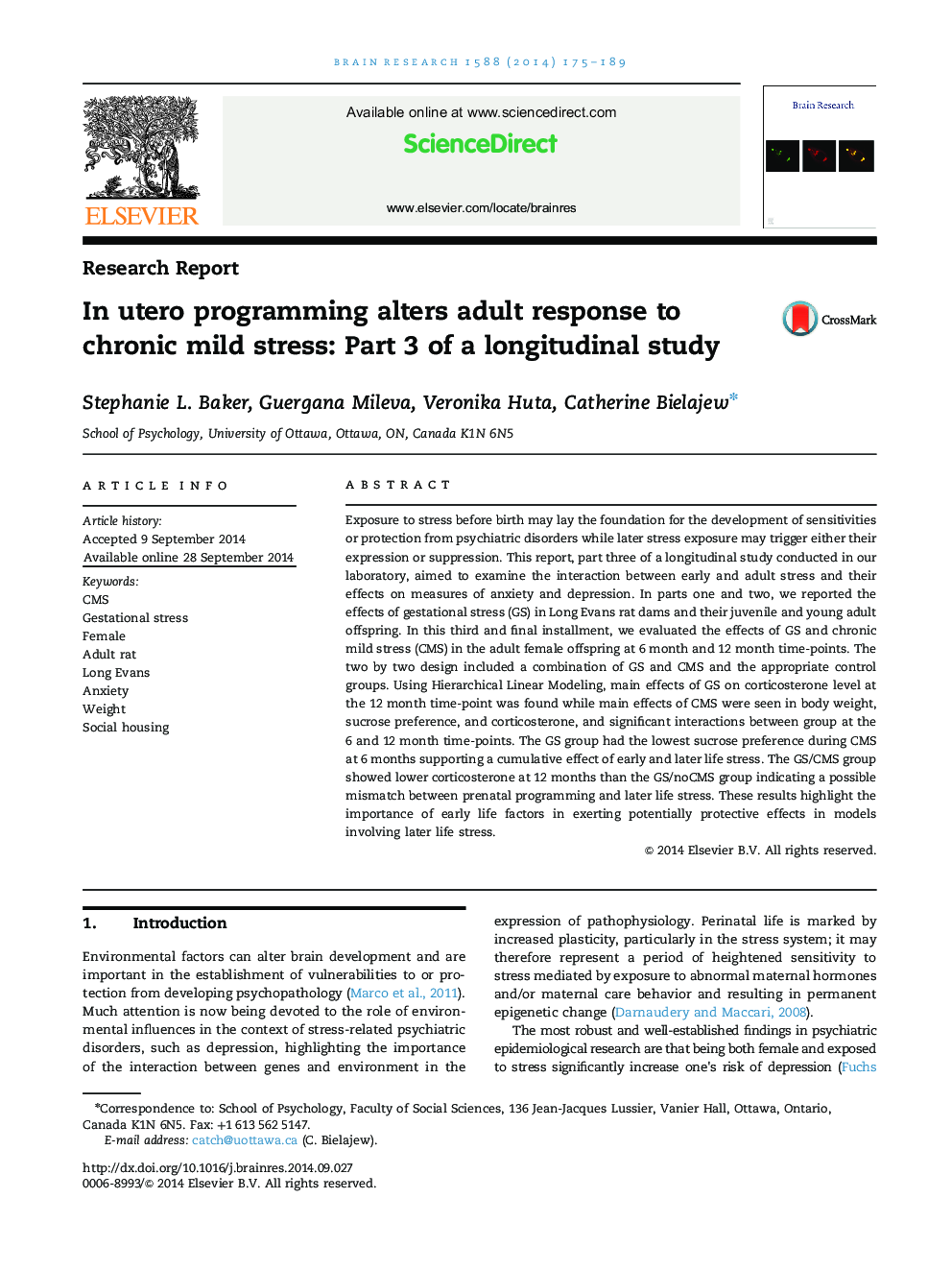| Article ID | Journal | Published Year | Pages | File Type |
|---|---|---|---|---|
| 4324084 | Brain Research | 2014 | 15 Pages |
•Examination of the effects of gestational stress on adult offspring after chronic mild stress.•Gestational stress affected corticosterone levels and weight.•Chronic mild stress decreased body weight and sucrose preference.•We found interactions between gestational stress and chronic mild stress.•Programing as offspring could change response to stress in later life.
Exposure to stress before birth may lay the foundation for the development of sensitivities or protection from psychiatric disorders while later stress exposure may trigger either their expression or suppression. This report, part three of a longitudinal study conducted in our laboratory, aimed to examine the interaction between early and adult stress and their effects on measures of anxiety and depression. In parts one and two, we reported the effects of gestational stress (GS) in Long Evans rat dams and their juvenile and young adult offspring. In this third and final installment, we evaluated the effects of GS and chronic mild stress (CMS) in the adult female offspring at 6 month and 12 month time-points. The two by two design included a combination of GS and CMS and the appropriate control groups. Using Hierarchical Linear Modeling, main effects of GS on corticosterone level at the 12 month time-point was found while main effects of CMS were seen in body weight, sucrose preference, and corticosterone, and significant interactions between group at the 6 and 12 month time-points. The GS group had the lowest sucrose preference during CMS at 6 months supporting a cumulative effect of early and later life stress. The GS/CMS group showed lower corticosterone at 12 months than the GS/noCMS group indicating a possible mismatch between prenatal programming and later life stress. These results highlight the importance of early life factors in exerting potentially protective effects in models involving later life stress.
